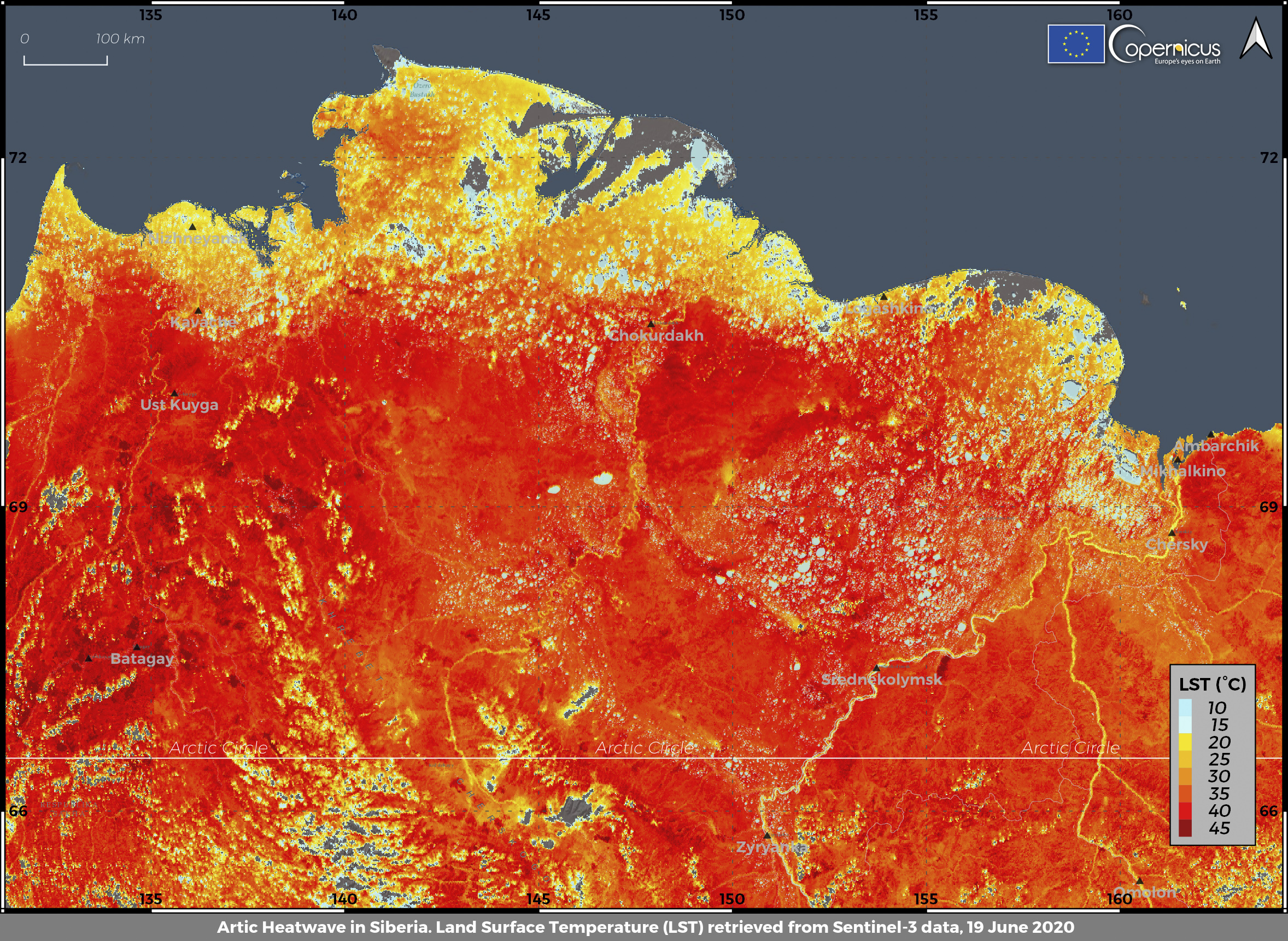The Arctic is on fire: Siberian heat wave alarms scientists
MOSCOW: The Arctic is feverish and on fire — at least parts of it are. And that’s got scientists worried about what it means for the rest of the world.
The thermometer hit a likely record of 38 degrees Celsius (100.4 degrees Fahrenheit) in the Russian Arctic town of Verkhoyansk on Saturday, a temperature that would be a fever for a person — but this is Siberia, known for being frozen. The World Meteorological Organization said Tuesday that it’s looking to verify the temperature reading, which would be unprecedented for the region north of the Arctic Circle.
“The Arctic is figuratively and literally on fire — it’s warming much faster than we thought it would in response to rising levels of carbon dioxide and other greenhouse gases in the atmosphere, and this warming is leading to a rapid meltdown and increase in wildfires,” University of Michigan environmental school dean Jonathan Overpeck, a climate scientist, said in an email.
“The record warming in Siberia is a warning sign of major proportions,” Overpeck wrote.
“Methane escaping from permafrost thaw sites enters the atmosphere and circulates around the globe,” she said. “Methane that originates in the Arctic does not stay in the Arctic. It has global ramifications.”
And what happens in the Arctic can even warp the weather in the United States and Europe.
In the summer, the unusual warming lessens the temperature and pressure difference between the Arctic and lower latitudes where more people live, said Judah Cohen, a winter weather expert at Atmospheric Environmental Research, a commercial firm outside Boston.
That seems to weaken and sometimes even stall the jet stream, meaning weather systems such as those bringing extreme heat or rain can stay parked over places for days on end, Cohen said.
According to meteorologists at the Russian weather agency Rosgidrome t, a combination of factors — such as a high pressure system with a clear sky and the sun being very high, extremely long daylight hours and short warm nights — have contributed to the Siberian temperature spike.
“The ground surface heats up intensively. .… The nights are very warm, the air doesn’t have time to cool and continues to heat up for several days,” said Marina Makarova, chief meteorologist at Rosgidromet.
Makarova added that the temperature in Verkhoyansk remained unusually high from Friday through Monday.
Scientists agree that the spike is indicative of a much bigger global warming trend.
“The key point is that the climate is changing and global temperatures are warming,” said Freja Vamborg, senior scientist at the Copernicus Climate Change Service in the U.K. “We will be breaking more and more records as we go.”
“What is clear is that the warming Arctic adds fuel to the warming of the whole planet,” said Waleed Abdalati, a former NASA chief scientist who is now at the University of Colorado.






